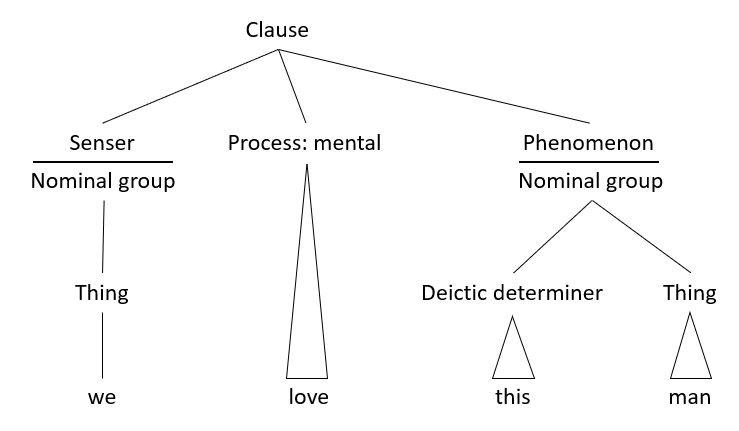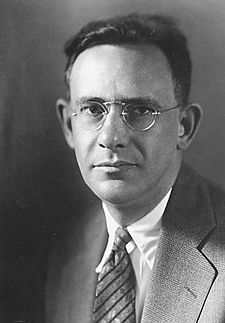|
Metafunctions
The term metafunction originates in systemic functional linguistics and is considered to be a property of all languages. Systemic functional linguistics is functional and semantic rather than formal and syntactic in its orientation. As a functional linguistic theory, it claims that both the emergence of grammar and the particular forms that grammars take should be explained "in terms of the functions that language evolved to serve". While languages vary in how and what they do, and what humans do with them in the contexts of human cultural practice, all languages are considered to be shaped and organised in relation to three functions, or metafunctions. Michael Halliday, the founder of systemic functional linguistics, calls these three functions the ''ideational'', ''interpersonal'', and ''textual''. The ideational function is further divided into the ''experiential'' and ''logical''. Metafunctions are ''systemic clusters''; that is, they are groups of semantic systems that make ... [...More Info...] [...Related Items...] OR: [Wikipedia] [Google] [Baidu] [Amazon] |
Systemic Functional Linguistics
Systemic functional linguistics (SFL) is an approach to linguistics, among functional linguistics, that considers language as a social semiotic system. It was devised by Michael Halliday, who took the notion of system from J. R. Firth, his teacher (Halliday, 1961). Firth proposed that systems refer to possibilities subordinated to structure; Halliday "liberated" choice from structure and made it the central organising dimension of SFL. In more technical terms, while many approaches to linguistic description place structure and the syntagmatic axis foremost, SFL adopts the paradigmatic axis as its point of departure. ''Systemic'' foregrounds Saussure's "paradigmatic axis" in understanding how language works.Halliday, M.A.K. 2004. Introduction: How Big is a Language? On the Power of Language. In The Language of Science: Volume 5 in the Collected Works of M.A.K. Edited by J.J.Webster. London and New York: Continuum. p. xi. For Halliday, a central theoretical principle is then ... [...More Info...] [...Related Items...] OR: [Wikipedia] [Google] [Baidu] [Amazon] |
Michael Halliday
Michael Alexander Kirkwood Halliday (often M. A. K. Halliday; 13 April 1925 – 15 April 2018) was a British linguist who developed the internationally influential systemic functional linguistics (SFL) model of language. His grammatical descriptions go by the name of systemic functional grammar. Halliday described language as a semiotic system, "not in the sense of a system of signs, but a systemic resource for meaning". For Halliday, language was a "meaning potential"; by extension, he defined linguistics as the study of "how people exchange meanings by 'languaging'". Halliday described himself as a ''generalist'', meaning that he tried "to look at language from every possible vantage point", and has described his work as "wander ngthe highways and byways of language". But he said that "to the extent that I favoured any one angle, it was the social: language as the creature and creator of human society". Halliday's grammar differs markedly from traditional accounts that empha ... [...More Info...] [...Related Items...] OR: [Wikipedia] [Google] [Baidu] [Amazon] |
Functional Linguistics
Functional linguistics is an approach to the study of language characterized by taking systematically into account the speaker's and the hearer's side, and the communicative needs of the speaker and of the given language community. Linguistic functionalism spawned in the 1920s to 1930s from Ferdinand de Saussure's systematic structuralist approach to language (1916). Functionalism sees functionality of language and its elements to be the key to understanding linguistic processes and structures. Functional theories of language propose that since language is fundamentally a tool, it is reasonable to assume that its structures are best analyzed and understood with reference to the functions they carry out. These include the tasks of conveying meaning and contextual information. Functional theories of grammar belong to structural and, broadly, humanistic linguistics, considering language as being created by the community, and linguistics as relating to systems theory. Function ... [...More Info...] [...Related Items...] OR: [Wikipedia] [Google] [Baidu] [Amazon] |
Ruqaiya Hasan
Ruqaiya Hasan (3 July 1931After government birth records were lost in Pratapgarh, Hasan's mother re-registered Ruqaiya's birthdate as 3 July 1931, slightly earlier than her real birthdate, to enroll her in school earlier. – 24 June 2015) was a professor of linguistics who held visiting positions and taught at various universities in England. Her last appointment was at Macquarie University in Sydney, from which she retired as emeritus professor in 1994. Throughout her career she researched and published widely in the areas of verbal art, culture, context and text, text and texture, lexicogrammar and semantic variation. The latter involved the devising of extensive semantic system networks for the analysis of meaning in naturally occurring dialogues. Biography In 1964 she completed her PhD in linguistics, also at the University of Edinburgh. The title of her thesis was 'hdl:1842/16409, A Linguistic Study of Contrasting Features in the Style of Two Contemporary English Prose Write ... [...More Info...] [...Related Items...] OR: [Wikipedia] [Google] [Baidu] [Amazon] |
Karl Bühler
Karl Ludwig Bühler (; 27 May 1879 – 24 October 1963) was a German psychologist and linguist. In psychology he is known for his work in Gestalt psychology, and he was one of the founders of the Würzburg School of psychology. In linguistics he is known for his organon model of communication and his treatment of deixis as a linguistic phenomenon. He was the dissertation advisor of Karl Popper. Early life and education Bühler was born in Meckesheim, Baden. In 1899 he started medical school at the University of Freiburg, where he received his doctorate in 1903. He continued working as an assistant, and started taking a second degree in psychology graduating in 1904. In 1906 he worked as an assistant professor at the University of Freiburg with von Kries, and as an assistant to Oswald Külpe at the University of Würzburg. Career In 1907 Bühler completed his Habilitation thesis at Würzburg, with the title ''Tatsachen und Probleme zu einer Psychologie der Denkvorgänge'' ... [...More Info...] [...Related Items...] OR: [Wikipedia] [Google] [Baidu] [Amazon] |
Benjamin Lee Whorf
Benjamin Atwood Lee Whorf (; April 24, 1897 – July 26, 1941) was an American linguist and fire prevention engineer best known for proposing the Sapir–Whorf hypothesis. He believed that the structures of different languages shape how their speakers perceive and conceptualize the world. Whorf saw this idea, named after him and his mentor Edward Sapir, as having implications similar to those of Einstein's principle of physical relativity. However, the concept originated from 19th-century philosophy and thinkers like Wilhelm von Humboldt and Wilhelm Wundt. Whorf initially pursued chemical engineering but developed an interest in linguistics, particularly Biblical Hebrew and indigenous Mesoamerican languages. His groundbreaking work on the Nahuatl language earned him recognition, and he received a grant to study it further in Mexico. He presented influential papers on Nahuatl upon his return. Whorf later studied linguistics with Edward Sapir at Yale University while w ... [...More Info...] [...Related Items...] OR: [Wikipedia] [Google] [Baidu] [Amazon] |
Linguistics
Linguistics is the scientific study of language. The areas of linguistic analysis are syntax (rules governing the structure of sentences), semantics (meaning), Morphology (linguistics), morphology (structure of words), phonetics (speech sounds and equivalent gestures in sign languages), phonology (the abstract sound system of a particular language, and analogous systems of sign languages), and pragmatics (how the context of use contributes to meaning). Subdisciplines such as biolinguistics (the study of the biological variables and evolution of language) and psycholinguistics (the study of psychological factors in human language) bridge many of these divisions. Linguistics encompasses Outline of linguistics, many branches and subfields that span both theoretical and practical applications. Theoretical linguistics is concerned with understanding the universal grammar, universal and Philosophy of language#Nature of language, fundamental nature of language and developing a general ... [...More Info...] [...Related Items...] OR: [Wikipedia] [Google] [Baidu] [Amazon] |
Grammar
In linguistics, grammar is the set of rules for how a natural language is structured, as demonstrated by its speakers or writers. Grammar rules may concern the use of clauses, phrases, and words. The term may also refer to the study of such rules, a subject that includes phonology, morphology (linguistics), morphology, and syntax, together with phonetics, semantics, and pragmatics. There are, broadly speaking, two different ways to study grammar: traditional grammar and #Theoretical frameworks, theoretical grammar. Fluency in a particular language variety involves a speaker internalizing these rules, many or most of which are language acquisition, acquired by observing other speakers, as opposed to intentional study or language teaching, instruction. Much of this internalization occurs during early childhood; learning a language later in life usually involves more direct instruction. The term ''grammar'' can also describe the linguistic behaviour of groups of speakers and writer ... [...More Info...] [...Related Items...] OR: [Wikipedia] [Google] [Baidu] [Amazon] |



